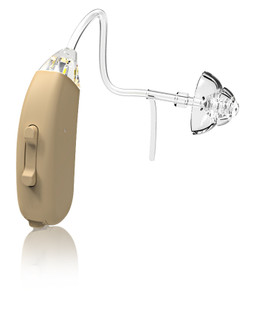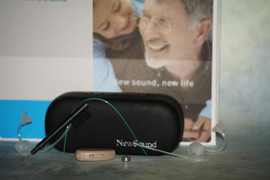Troubleshooting Common Issues with RIC Hearing Aids
Posted by DR Paul on Jun 05, 2024
RIC hearing aids are a popular choice among seniors, offering advanced digital sound quality and a discreet design. However, like all technology, they can occasionally run into issues that may affect their performance. In this guide, we'll walk you through common problems with RIC hearing aids and provide practical solutions to ensure you're always hearing your best.
Understanding RIC Hearing Aids
Receiver-in-Canal (RIC) hearing aids are designed with the receiver located in the ear canal, connected to the main body of the device by a thin wire. This design helps deliver clear, natural sound while maintaining a discreet appearance. Brands like Hear-Better.Com offer a range of RIC hearing aids that provide excellent digital sound quality and various features to suit your needs.
Common RIC Hearing Aid Issues and Solutions
1. No Sound or Weak Sound
Possible Causes:
Dead or low battery.
Blocked microphone or receiver.
Incorrect settings or volume level.
Troubleshooting Steps:
Check the Battery: Ensure the battery is properly inserted and has enough charge. Replace it if necessary.
Clean the Device: Use a soft brush or a cleaning tool to remove any debris from the microphone or receiver.
Adjust Settings: Make sure the hearing aid is turned on and the volume is set to an appropriate level. Refer to your user manual for specific instructions on adjusting settings.
2. Feedback or Whistling Noise
Possible Causes:
Poor fit of the hearing aid.
Earwax buildup.
Damaged or worn-out earpiece.
Troubleshooting Steps:
Check the Fit: Make sure the hearing aid and earpiece fit snugly in your ear. If it feels loose, consult with your audiologist for a refitting.
Clean Your Ears: Ensure your ears are free from wax buildup, as this can cause feedback.
Inspect the Earpiece: Check for any damage or wear and tear on the earpiece. Replace it if necessary.
3. Distorted or Unclear Sound
Possible Causes:
Moisture or condensation in the hearing aid.
Interference from electronic devices.
Incorrect programming settings.
Troubleshooting Steps:
Dry the Device: Use a hearing aid dehumidifier to remove any moisture. Store your hearing aids in a dry place when not in use.
Move Away from Electronics: Ensure you are not near devices that may cause interference, such as computers or cell phones.
Reprogramming: Visit your audiologist to check and adjust the programming settings of your hearing aid.
4. Hearing Aid Won't Turn On
Possible Causes:
Dead battery.
Faulty battery contacts.
Internal damage or malfunction.
Troubleshooting Steps:
Replace the Battery: Ensure the battery is fresh and correctly inserted.
Clean the Contacts: Gently clean the battery contacts with a dry cloth.
Consult a Professional: If these steps don't work, consult your audiologist or hearing aid provider for further assistance.
Tips for Maintaining Your RIC Hearing Aids
Regular maintenance can help prevent many of these issues from occurring. Here are some tips to keep your hearing aids in top condition:
Daily Cleaning: Wipe down your hearing aids daily with a soft, dry cloth to remove any dirt or moisture.
Regular Checkups: Schedule regular checkups with your audiologist to ensure your hearing aids are working correctly.
Safe Storage: When not in use, store your hearing aids in a dry, protective case.
Avoid Water: Keep your hearing aids away from water and moisture, including during showering or swimming.
Conclusion
RIC hearing aids, like those offered by Hear-Better.Com, are a fantastic solution for many seniors seeking improved hearing. By understanding common issues and knowing how to troubleshoot them, you can ensure your hearing aids continue to provide the best possible hearing experience. Remember, regular maintenance and professional checkups are key to keeping your devices in top shape.
If you have any persistent problems or need further assistance, don't hesitate to reach out to your audiologist or hearing aid provider. They are there to help you hear better every day.
For more information on RIC hearing aids and to explore our range of products, visit Hear-Better.Com.










